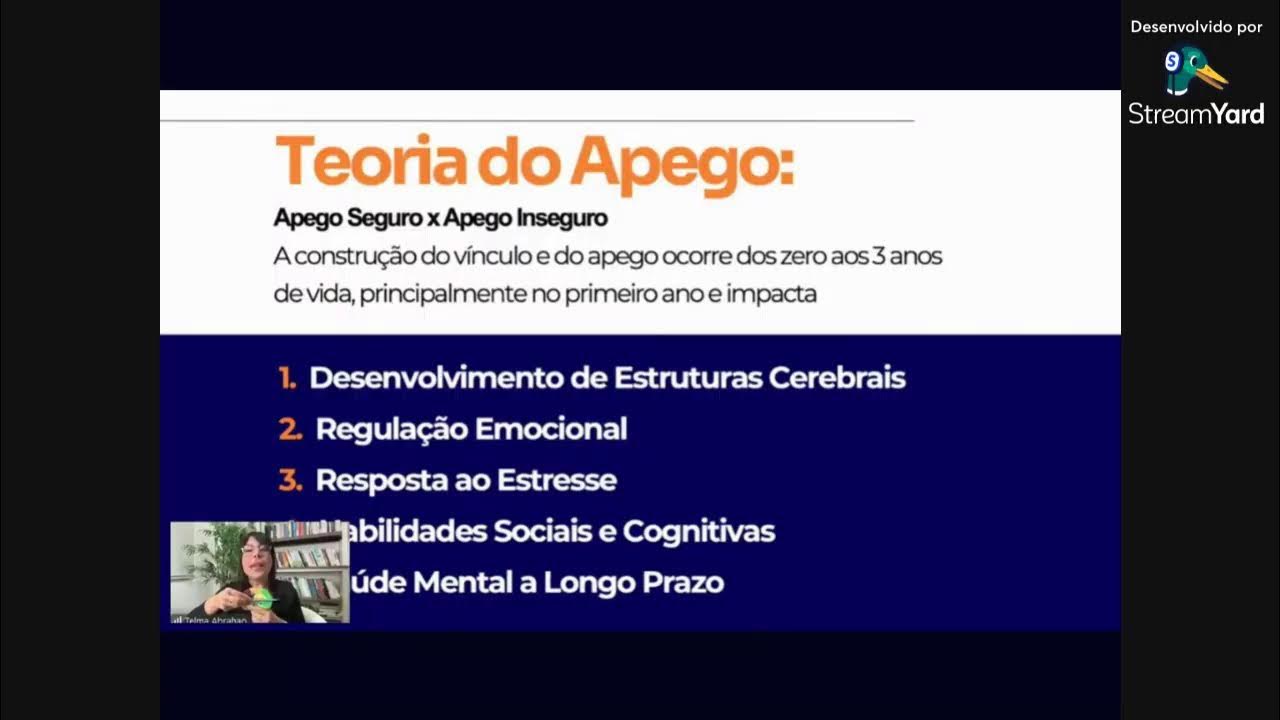O NEURODESENVOLVIMENTO INFANTIL
Summary
TLDRThe video highlights the crucial role of early childhood neurodevelopment, emphasizing the lasting impact of external stimuli on a child's brain. It explains how experiences from pregnancy through early childhood, including caregiver interactions, shape a child's physical, emotional, and cognitive growth. Key milestones, from motor skills to language development, are detailed, showing how a nurturing, stimulating environment fosters healthy brain development. The PENSI Institute's commitment to promoting children’s well-being through research and effective strategies underscores the importance of early care in shaping a child's future.
Takeaways
- 😀 The brain of a baby continues to develop after birth, influenced by external stimuli from parents, caregivers, and professionals.
- 😀 Environmental stimuli like mobility, sensory skills, and communication significantly affect a child's brain development.
- 😀 Children's neurodevelopment encompasses physical, emotional, social, and cognitive aspects from birth to preschool age.
- 😀 The child's brain architecture is shaped by the environment and the relationships they have with caregivers.
- 😀 A warm, harmonious, and experience-rich environment is crucial for the comprehensive development of a child, even before birth.
- 😀 The Early Childhood period (from pregnancy to the first six years) is critical for a child’s lifelong development.
- 😀 Babies can hear their parents' voices and respond to environmental stimuli like music even before birth.
- 😀 From birth to 2 years old, children undergo significant changes like learning to walk, talk, and observe their surroundings.
- 😀 Between 2 and 4 years old, children begin symbolic thinking, naming objects, actions, and qualities.
- 😀 From 4 to 6 years old, children start school, develop judgment, and begin learning skills like reading, writing, and math.
- 😀 Children are biological, psychological, and social beings, requiring proper nutrition, affection, and interaction to develop well.
- 😀 Unfavorable events like poor nutrition, unsafe environments, and lack of affection can hinder healthy brain development in children.
- 😀 Positive interactions like a parent reading a story or giving affection have a lasting positive impact on brain development.
- 😀 PENSI INSTITUTE emphasizes the importance of early childhood brain development and works on programs to promote healthy child development.
Q & A
What is neurodevelopment in children?
-Neurodevelopment refers to the process by which a child's brain and nervous system grow and mature, impacting their physical, emotional, cognitive, and social skills. It includes changes in the brain architecture influenced by environmental factors and relationships with caregivers.
How does external stimuli affect a child's brain development?
-External stimuli, such as interactions with parents, caregivers, and trained professionals, play a crucial role in shaping the connections between neurons. These stimuli impact various aspects of brain development, including mobility, sensory skills, language, emotions, and behavior.
Why is early childhood considered a critical period for brain development?
-Early childhood, which includes pregnancy, birth, and the first six years of life, is a crucial period for brain development because experiences during this time lay the foundation for the child's future. Positive experiences during this stage have long-lasting effects on the child's cognitive and emotional growth.
How does a child's environment influence their development?
-A child's environment, including the care they receive from parents and caregivers, directly shapes their brain development. A rich environment with warm, supportive, and stimulating experiences helps the child develop skills such as language, emotional regulation, social interactions, and motor skills.
What milestones are typically reached between birth and 2 years of age?
-Between birth and 2 years of age, a child undergoes significant changes, including taking their first steps, beginning to speak, and starting to observe their surroundings and people. These milestones are critical for establishing physical mobility, communication, and social awareness.
What is the significance of the age 2 to 4 years in a child's development?
-From ages 2 to 4, children enter a period known as the 'world of symbolism.' During this time, they start naming objects, actions, and qualities, and they begin to walk upright, which provides them with a greater perspective of the world. This period is essential for language acquisition and cognitive development.
What changes occur in a child's development between the ages of 4 and 6?
-Between ages 4 and 6, children transition into the early school years, developing preferences, judgments, and beginning to learn foundational academic skills like reading, writing, and basic math. This period marks the start of formal education and socialization outside the home.
What are the three dimensions of child development during early childhood?
-The three dimensions of child development during early childhood are biological, psychological, and social. Biological development involves physical growth and health, psychological development includes emotional and cognitive skills, and social development focuses on interactions with others and integration into society.
What are some negative factors that can affect a child's brain development?
-Negative factors include inadequate nutrition, an unsafe or unstable home environment, lack of physical affection, and insufficient stimulation from caregivers. These factors can hinder a child's healthy brain development and overall well-being.
How can caregivers positively influence a child's development?
-Caregivers can positively influence a child's development through affectionate touch, engaging in activities like reading, singing, and providing rich visual, auditory, and tactile stimuli. Simple gestures such as reading a bedtime story or singing during bathtime can have a lasting positive impact on brain development.
Outlines

This section is available to paid users only. Please upgrade to access this part.
Upgrade NowMindmap

This section is available to paid users only. Please upgrade to access this part.
Upgrade NowKeywords

This section is available to paid users only. Please upgrade to access this part.
Upgrade NowHighlights

This section is available to paid users only. Please upgrade to access this part.
Upgrade NowTranscripts

This section is available to paid users only. Please upgrade to access this part.
Upgrade NowBrowse More Related Video
5.0 / 5 (0 votes)





